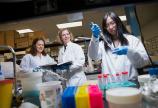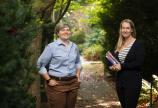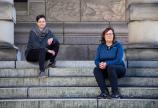COVID-19 health research gets boost
Medical Sciences, Science, Human and Social Development, Social Sciences
- University of Victoria
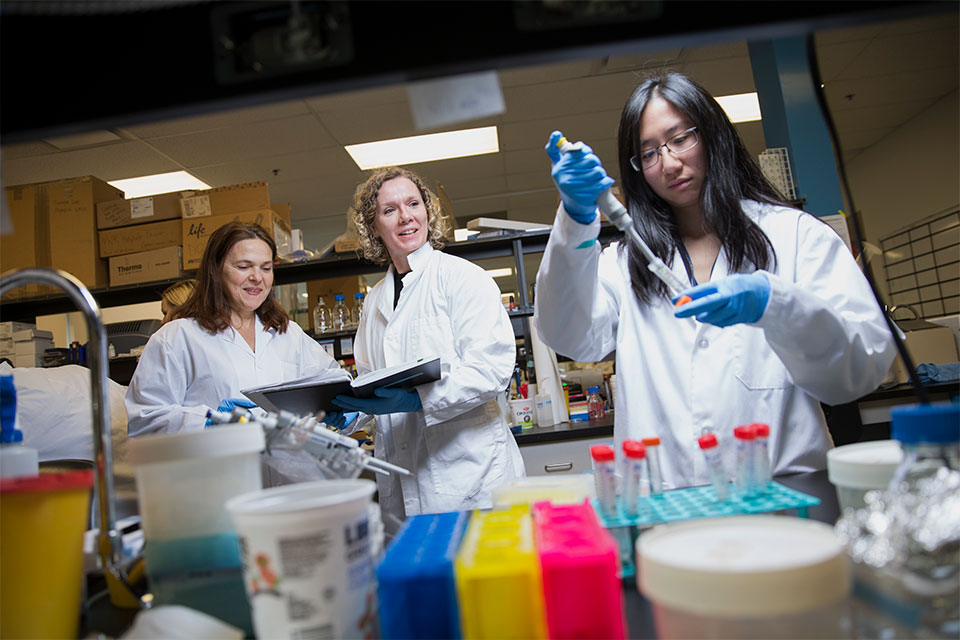
The global pandemic brought a year of disruptive shifts, rethinking and heartbreaking losses. Throughout, despite a year like no other, University of Victoria researchers pivoted research and studied solutions to build more resilient communities in the wake of COVID-19.
This spring, UVic funded its first round of the Research Accelerator Fund (RAF), a seed fund to support and boost research at our university. The first RAF campaign focused on COVID-19 research that strives to make communities stronger and speed up recovery—locally and beyond.
“The Research Accelerator Fund supports recovery efforts through expertise, partnerships and infrastructure,” says Nathan Lachowsky, special adviser of health research within the Office of the Vice-President Research and Innovation.
“Projects funded under RAF represent new and emerging partnerships and team-based interdisciplinary approaches—co-created projects with aspirations for significant impact in our communities.”
UVic launched the seed fund last summer to empower the university’s world-class researchers to respond to the urgent needs of communities in areas of economic sustainability, the health of individuals and populations and Indigenous wellness.
Initial funds by donors under RAF contributed to providing $165,000 to six projects, including the following:
Dr. Leigh Anne Swayne, a UVic neuroscientist within the Division of Medical Sciences, leads a team of researchers to understand the adverse effects of SARS-CoV-2 infection on the brain. More is known about COVID-19’s impact on respiratory and cardiovascular systems, but its lingering effects on the brain—whether loss of smell or so-called “brain fog”—is more of a mystery.
Statistician Xuekui Zhang and his team of researchers are studying risk factors for COVID-19 and forecasting infection counts. They’re looking at US infection data to model the trajectory of COVID-19 infection and apply that model to Canadian infection rates to better predict outcomes here.
Read more about the RAF projects.
Learn more about RAF and UVic’s collaborative health grants.
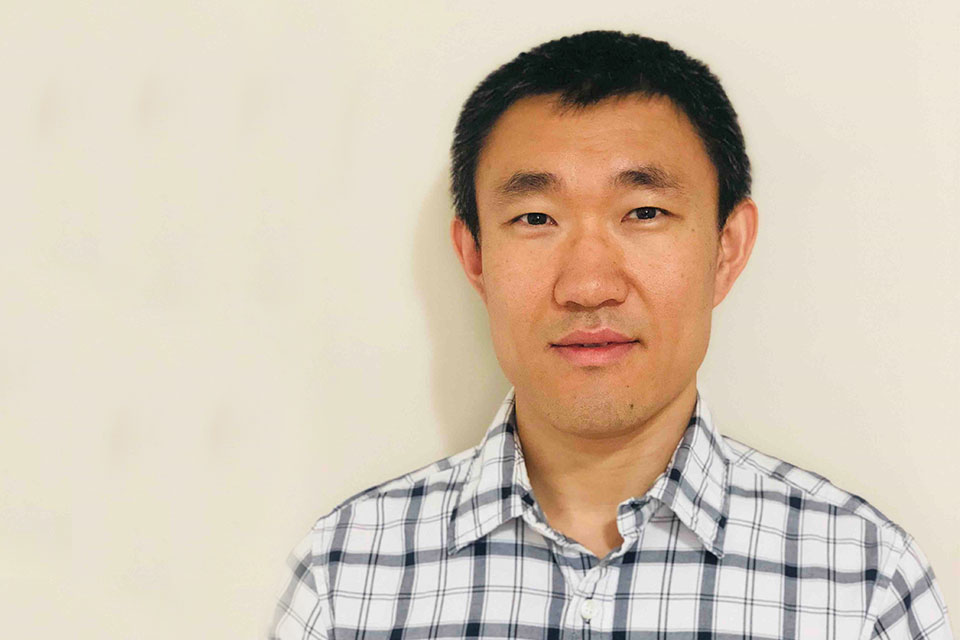
Exploring impacts of the pandemic
From understanding the mental health needs of older people to how the COVID-19 pandemic intersects with the ongoing overdose public health emergency in BC, UVic researchers are creating solutions relevant to these lived experiences with support from the BC Ministry of Health.
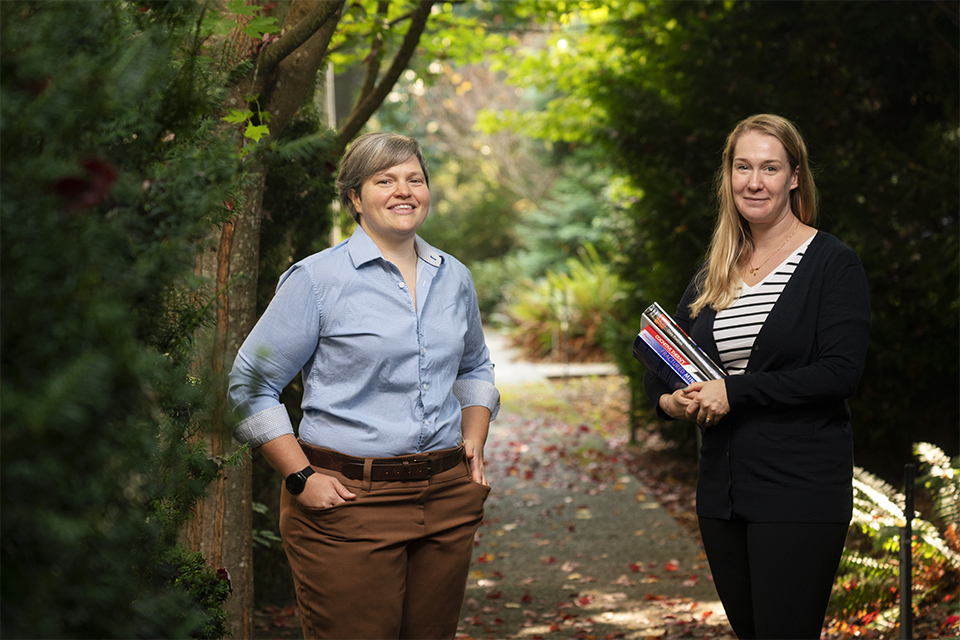
In response to the global COVID-19 pandemic, psychology researchers Brianna Turner and Theone Paterson (Psychology) are leading a nationwide study asking how COVID-19 and the associated preventative measures are affecting the lives of Canadians. Partnered with researchers in the UK, Canada is one of 11 countries seeking to identify what has been helpful or harmful to our well-being throughout this time. The work is also supported by funding from the Canadian Institutes of Health Research (CIHR) and Michael Smith Foundation for Health Research (MSFHR).
Claire Cutler’s (Political Science) research is entitled The Legal and Political Vulnerability of PPE Supply Chains during the COVID-19 Pandemic: Policy Prescriptions for Enhanced Security. She is identifying critical nodes of legal and political vulnerability in the supply chains for Personal Protective Equipment, known as PPE, for Canada. The goal is to provide policy prescriptions to assist provincial and federal governments in developing appropriate long-term cooperative strategies and partnerships in order to enhance the security of supplies.
UVic research led by Erica Woodin and Catherine Costigan (Psychology) involves a community-engaged partnership with the Victoria Assertive Community Treatment (ACT) Program, which consists of four interdisciplinary treatment teams that provide stabilization and rehabilitation to adults living with severe mental illness in the community. ACT team members are experiencing greater levels of stress than normal during the pandemic, which is due in part to the greater number of opiate-related deaths among ACT clients in recent months. The purpose of this project is to understand the practices being used that support interdisciplinary team-based care and the psychological health and safety of team members, and to provide recommendations to further support clinician well-being.
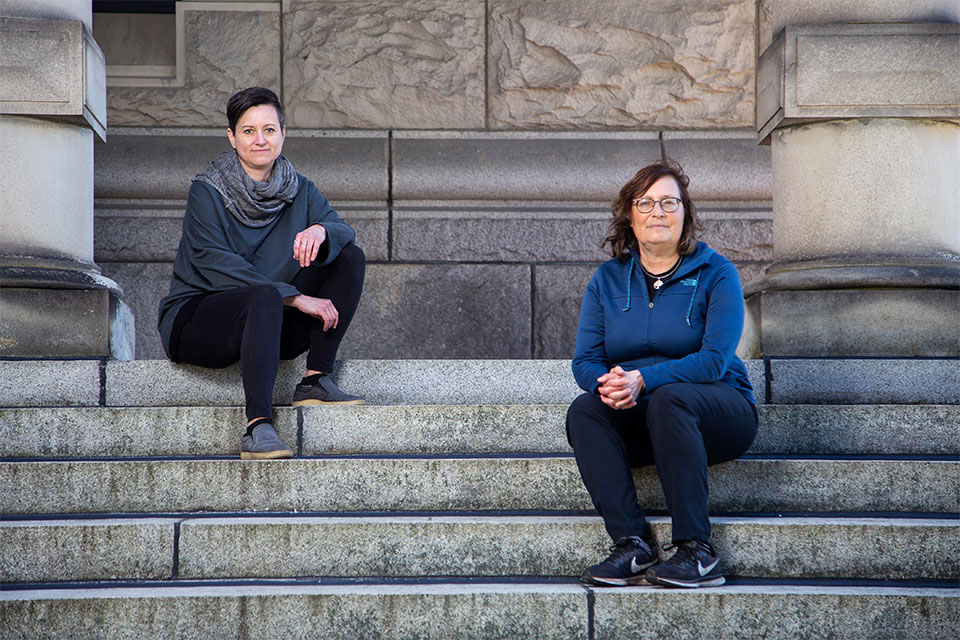
A UVic project led by Karen Kobayashi (Sociology) will focus on frail and vulnerable seniors and assisted living technologies (ALTs) to overcome challenges and improve life. The team is focused on improving the health and quality of life of seniors living with complex care needs, and multiple, chronic health conditions. They will investigate several innovative ALTs currently being developed in the province. By using a community-based participatory research methodology, they bring researchers, key health system decision-makers, technology developers, and older adult end-users together, focused on addressing and overcoming challenges to embedding ALTs in end-users’ real-world contexts.
As the COVID-19 pandemic intersects with the ongoing overdose public health emergency in BC, the need to evaluate responses to both these crises is crucial. UVic researchers Karen Urbanoski (CISUR/Public Health and Social Policy) and Bernie Pauly (CISUR/Nursing) are part of a multi-institutional team evaluating the rollout of “safer supply” prescribed alternatives to BC’s toxic illicit drug supply. This research will provide critical evidence to inform pandemic planning and emergency response activities at federal, provincial and local levels.
Photos
